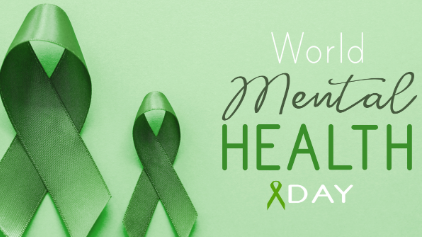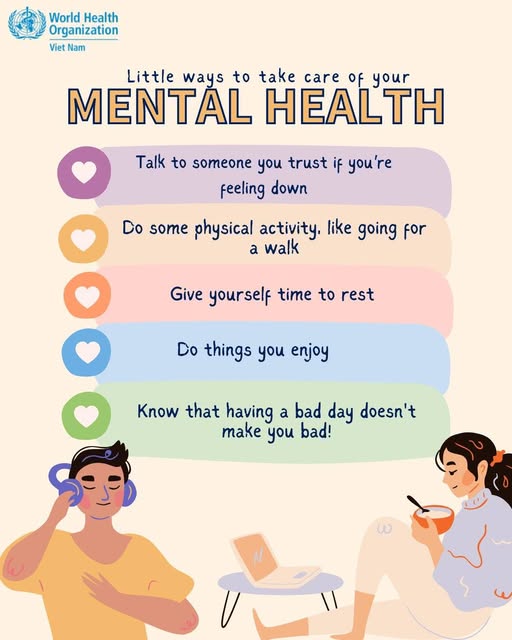Central SA
World Mental Health Day: It’s okay to acknowledge you’re struggling─── ZENANDE MPAME 12:17 Fri, 10 Oct 2025

Every year on 10 October, the world comes together to observe World Mental Health Day, a day dedicated to raising awareness and mobilising action for mental well-being.
This year’s global theme, ‘Access to Services: Mental Health in Catastrophes and Emergencies’, underscores the importance of ensuring that everyone, especially those affected by crises, can access the mental health care they need. South Africa has been ranked among the ten most violent countries in the world, according to World Population Review.
South Africans continue to face the daily realities of gender-based violence (GBV), poverty, and crime, all of which have deep and lasting effects on mental health. The South African Federation for Mental Health warns that these socio-economic challenges have reached emergency levels, calling for urgent and coordinated responses from government and society alike.
“Unfortunately, too many people still do not receive the mental health care they need here in our country. And there’s a major gap that exists with regards to ensuring adequate mental health care in South Africa,” said Southern Free State Mental Health director Sandra Laten.
“By improving our visibility, we also focus on getting rid of the stigma surrounding mental health. We want people to know that it’s okay to acknowledge that you’re struggling, and there is nothing wrong with you.
“Many people experience mental health issues, and by talking about it openly, we make it easier for others to seek help. We try to move in the community in such a way that we will improve our visibility.

Some of the ways to take care of your mental health. Photo: Facebook/World Health Organization (WHO)
“We also reach out through radio stations, local newspapers, and schools.”
Several studies show that women and children who experienced GBV (including rape) are at higher risk of depression, anxiety disorders, post-traumatic stress disorder, substance abuse, suicidal thoughts, and attempts.
‘Our core business is mental health’
The South African Federation for Mental Health calls for the government to acknowledge that violence is a public health emergency in the country, which significantly impacts the mental health of all in South Africa.
The federation further calls for GBV shelters and other frontline support services to ensure relevant and adequate mental health services are offered.
“Our core business is mental health, so in partnership with agencies and NPOs, we can address the mental health implications of violence, crime, and trauma more holistically,” said Laten.
• Have a news tip to share? Phone or whatsapp the OFM News Hotline: 066 487 1427.















